Back to Top
Election Subversion: Is American Democracy in Danger?
This half-day virtual conference considers a new danger to American democracy that emerged during the 2020 election season: the risk to the fair counting and certification of votes.
Participants Include
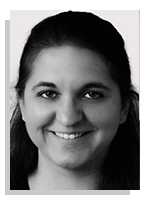 Julia Azari is Associate Professor and Assistant Chair in the Department of Political Science at Marquette University. She holds PhD, MA and MPhil degrees in political science from Yale University, and a BA in political science from the University of Illinois at Urbana-Champaign. Her research and teaching interests include the American presidency, American political parties, the politics of the American state, and qualitative research methods. Her research has been supported by the Marquette University Regular Research Grant, the Harry Middleton Fellowship in Presidential Studies, the Gerald Ford Presidential Library Foundation Travel Grant, and the Harry Truman Library Institute Scholars Award.
Julia Azari is Associate Professor and Assistant Chair in the Department of Political Science at Marquette University. She holds PhD, MA and MPhil degrees in political science from Yale University, and a BA in political science from the University of Illinois at Urbana-Champaign. Her research and teaching interests include the American presidency, American political parties, the politics of the American state, and qualitative research methods. Her research has been supported by the Marquette University Regular Research Grant, the Harry Middleton Fellowship in Presidential Studies, the Gerald Ford Presidential Library Foundation Travel Grant, and the Harry Truman Library Institute Scholars Award.Prof. Azari is a regular contributor at FiveThirtyEight and the political science blog The Mischiefs of Faction. Her work has also appeared in the Washington Post’s Monkey Cage blog and in Politico.
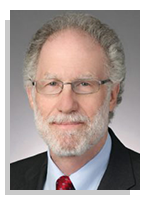
Bob Bauer is Professor of Practice and Distinguished Scholar in Residence at the New York University School of Law and Co-Director of NYU Law’s Legislative and Regulatory Process Clinic. Bauer served as White House Counsel to President Obama from 2009 to 2011. In 2013, the President named him to be Co-Chair of the Presidential Commission on Election Administration. In 2021, President Biden named him to be co-chair of the Presidential Commission on the Supreme Court of the United States.
Bob was General Counsel to Obama for America, the President’s campaign organization, in 2008 and 2012. Bob has also served as co-counsel to the New Hampshire State Senate in the trial of Chief Justice David A. Brock (2000) and counsel to the Democratic Leader in the trial of President William Jefferson Clinton (1999).
Bob is co-author with Jack Goldsmith of After Trump: Reconstructing the Presidency (2020), books on federal campaign finance and numerous articles on law and politics for legal periodicals. He has co-authored numerous bipartisan reports on policy and legal reform, including “The American Voting Experience: Report and Recommendations of the Presidential Commission on Election Administration” (Presidential Commission on Election Administration, 2014); “The State of Campaign Finance in the United States” (Bipartisan Policy Center, 2018); and “Democratizing the Debates” (Annenberg Working Group on Presidential Campaign Debate Reform, 2015). He is a Contributing Editor of Lawfare and has published opinion pieces on constitutional and political law issues in The New York Times, The Washington Post, and The Atlantic, among other publications.
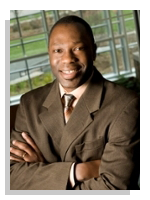 Guy-Uriel Charles is the Charles Ogletree, Jr. Professor of Law at Harvard Law School, where he teaches and writes about election law, race and law, constitutional law, and civil procedure. He is the founding director of the Duke Law Center on Law, Race and Politics.
Guy-Uriel Charles is the Charles Ogletree, Jr. Professor of Law at Harvard Law School, where he teaches and writes about election law, race and law, constitutional law, and civil procedure. He is the founding director of the Duke Law Center on Law, Race and Politics.
Before joining Harvard Law, Professor Charles taught at Duke Law School, where he was the founding director of the Duke Law Center on Law, Race and Politics. He taught at the University of Minnesota Law School from 2000-2009, where he served as interim co-dean from 2006-2008. He has been a visiting professor at Georgetown, Virginia, and Columbia law schools. A past member of the National Research Commission on Elections and Voting and the Century Foundation Working Group on Election Reform, Professor Charles has served as the director of the Institute for Law & Politics, a Senior Fellow in Law and Politics at the Institute on Race and Poverty, and a Law School Faculty Affiliate at the Center for the Study of Political Psychology, University of Minnesota.
Professor Charles has published articles in Constitutional Commentary, The Michigan Law Review, The Michigan Journal of Race and Law, The Georgetown Law Journal, The Journal of Politics, The California Law Review, The North Carolina Law Review, and others. He is co-author of Election Law in the American Political System (with James Gardner) and Racial Justice and Law: Cases and Materials (with Ralph Richard Banks, Kim Forde-Mazrui and Cristina Rodriguez). He is co-editor of The New Black, What Has Changed and What Has Not with Race in America (with Kenneth Mack) and Race, Reform, and Regulation of the Electoral Process: Recurring Puzzles in American Democracy (with Heather Gerken and Michael Kang). He is currently working on a book on voting rights and the Voting Rights Act with Luis Fuentes-Rohwer entitled The American Promise: Rethinking Voting Rights Law and Policy for a Divided America.
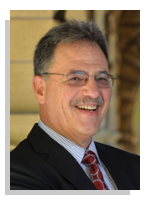
Larry Diamond is a senior fellow at the Hoover Institution and at the Freeman Spogli Institute for International Studies (FSI) at Stanford University. His is also professor by courtesy of Political Science and Sociology at Stanford and founding co-editor of the Journal of Democracy. He served for six years as Director of Stanford’s Center on Democracy, Development and the Rule of Law and Faculty Director of the Haas Center for Public Service. Diamond is the author of seven books and over 100 articles and book chapters on global democratic development and policies and strategies to promote democracy. His most recent book, Ill Winds: Saving Democracy from Russian Rage, Chinese Ambition, and American Complacency, analyzes the challenges confronting liberal democracy in the United States and around the world at this “hinge in history.” In addition, he has edited or co-edited 50 books on democratic development in virtually every region of the world.
Diamond was the first major democracy scholar to argue, beginning in 2008, that the world had entered a “recession” of democracy due to changing global power dynamics, including the decline of democratic resolve and effectiveness among the advanced democracies and the rise of authoritarian powers, particularly China and Russia. He now leads research programs at Hoover and Stanford to study and respond to China’s global projection of “sharp power,” and to analyze and advance democratic prospects in the Arab world and global digital policies to defend human rights. Diamond is also a prominent advocate of reforms to strengthen and depolarize American democracy, such as Ranked Choice Voting, and he has been a co-principal investigator and co-author of “America in One Room,” an ongoing experiment in Deliberative Democracy aiming to enrich public policy dialogue and diminish partisan polarization.
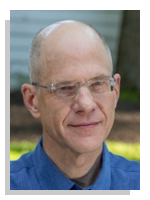 Edward B. Foley holds the Ebersold Chair in Constitutional Law at The Ohio State University, where he also directs its election law program. He is a contributing opinion columnist for the Washington Post, and for the 2020 election season, he served as an NBC News election law analyst.
Edward B. Foley holds the Ebersold Chair in Constitutional Law at The Ohio State University, where he also directs its election law program. He is a contributing opinion columnist for the Washington Post, and for the 2020 election season, he served as an NBC News election law analyst.
His most current book, Presidential Elections and Majority Rule (Oxford University Press, 2020), excavates the long-forgotten philosophical premises of how the Electoral College is supposed to work, as revised by the Twelfth Amendment to the U.S. Constitution, and then uses this historical analysis to provide a feasible basis for reform of state laws that would enable the Electoral College to operate according to majority-rule objectives it was designed to achieve.
His book Ballot Battles: The History of Disputed Elections in the United States (Oxford University Press, 2016) was named Finalist for the David J. Langum, Sr. Prize in American Legal History and listed as one of 100 “must-read books about law and social justice”.
As Reporter for the American Law Institute’s Project on Election Administration, Foley drafted Principles of Law: Non-Precinct Voting and Resolution of Ballot-Counting Disputes, which provides nonpartisan guidance for the resolution of election disputes. He has also co-authored Election Law and Litigation: The Judicial Regulation of Politics (Wolters Kluwer 2014).
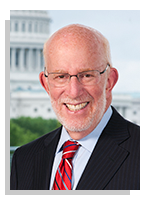 Ben Ginsberg, a Distinguished Visiting Fellow at Stanford’s Hoover Institution and a Lecturer at the Stanford Law School, is a nationally known elections lawyer with 38 years’ experience representing participants in the political process. His clients have included political parties, political campaigns, candidates, members of Congress and state legislatures, governors, corporations, trade associations, PACs, vendors, donors and individuals. He represented four of the last six Republican Presidential nominees.
Ben Ginsberg, a Distinguished Visiting Fellow at Stanford’s Hoover Institution and a Lecturer at the Stanford Law School, is a nationally known elections lawyer with 38 years’ experience representing participants in the political process. His clients have included political parties, political campaigns, candidates, members of Congress and state legislatures, governors, corporations, trade associations, PACs, vendors, donors and individuals. He represented four of the last six Republican Presidential nominees.
His representations ranged across a variety of election law and regulatory issues, including those involving voting issues and election day operations, election recounts and contests, redistricting, federal and state campaign finance laws, government investigations, ethics and gifts rules, pay-to-play laws, election administration and communications law. Ben was appointed by President Barak Obama to serve as co-chair of the bipartisan Presidential Commission on Election Administration which produced a much-lauded report in 2014 on best practices and recommendations for state and local officials to make U.S. elections run better.
Ben, currently a CNN contributor, appears frequently on television as an on-air commentator about politics and the law and has written numerous op-eds. He has also been a Fellow at Harvard University's Institute of Politics and an adjunct professor of law at Georgetown University Law Center.
He served as national counsel to the Bush-Cheney presidential campaigns in the 2004 and 2000 election cycles and played a central role in the 2000 Florida recount. (In Jay Roach's movie Recount, Ginsberg is played by Bob Balaban). In 2012 and 2008, he served as national counsel to the Romney for President campaign. He also has represented the campaigns and leadership PACs of numerous members of the Senate and House as well as the national party committees, Governors and state officials. He has wide experience on the state legislative level from directing Republican redistricting efforts nationwide following the 1990 Census and being actively engaged in the 2001-2002 and 2011-2012 rounds of redistricting. He was a partner at Jones Day from 2014 to 2020 and at Patton Boggs for 23 years before that.
Prior to entering law school, Ben spent five years as a newspaper reporter at The Boston Globe, Philadelphia Evening Bulletin, The Berkshire Eagle (Massachusetts), and The Riverside Press-Enterprise (California).
He and his wife, Jo Anne, live in Washington, D.C. and have two children and four grandchildren.
 Professor Richard L. Hasen is Chancellor’s Professor of Law and Political Science at the University of California, Irvine and is Co-Director of the Fair Elections and Free Speech Center. Hasen is a nationally recognized expert in election law and campaign finance regulation, writing as well in the areas of legislation and statutory interpretation, remedies, and torts. He is co-author of leading casebooks in election law and remedies. He served in 2020 as a CNN Election Law Analyst.
Professor Richard L. Hasen is Chancellor’s Professor of Law and Political Science at the University of California, Irvine and is Co-Director of the Fair Elections and Free Speech Center. Hasen is a nationally recognized expert in election law and campaign finance regulation, writing as well in the areas of legislation and statutory interpretation, remedies, and torts. He is co-author of leading casebooks in election law and remedies. He served in 2020 as a CNN Election Law Analyst.
From 2001-2010, he served (with Dan Lowenstein) as founding co-editor of the quarterly peer-reviewed publication, Election Law Journal. He is the author of over 100 articles on election law issues, published in numerous journals including the Harvard Law Review, Stanford Law Review and Supreme Court Review. He was elected to The American Law Institute in 2009 and serves as Reporter (with Professor Douglas Laycock) on the ALI’s law reform project: Restatement (Third) of Torts: Remedies. He also is an adviser on the Restatement (Third) of Torts: Concluding Provisions.
Professor Hasen was named one of the 100 most influential lawyers in America by The National Law Journal in 2013, and one of the Top 100 Lawyers in California in 2005 and 2016 by the Los Angeles and San Francisco Daily Journal. His op-eds and commentaries have appeared in many publications, including The New York Times, Wall Street Journal, The Washington Post, Politico, and Slate. Hasen also writes the often-quoted Election Law Blog, which the ABA Journal named to its “Blawg 100 Hall of Fame” in 2015. The Green Bag recognized his 2018 book, The Justice of Contradictions: Antonin Scalia and the Politics of Disruption, for exemplary legal writing, and his 2016 book, Plutocrats United, received a Scribes Book Award Honorable Mention. His newest book, Election Meltdown: Dirty Tricks, Distrust, and the Threat to American Democracy was published by Yale University Press in 2020.
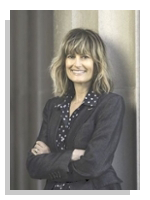 Gretchen Helmke is Professor of Political Science at University of Rochester. Her research focuses on political institutions, democratic consolidation and erosion, the rule of law, and Latin American politics. Her most recent book is Institutions on the Edge: The Origins and Consequences of Institutional Instability in Latin America (Cambridge University Press, 2017).
Gretchen Helmke is Professor of Political Science at University of Rochester. Her research focuses on political institutions, democratic consolidation and erosion, the rule of law, and Latin American politics. Her most recent book is Institutions on the Edge: The Origins and Consequences of Institutional Instability in Latin America (Cambridge University Press, 2017).
She is one of the co-founders of Bright Line Watch, a non-partisan organization that brings together leading political scientists to monitor democratic practices in the United States from a comparative perspective. Bright Line Watch is supported by grants from the Democracy Fund and the Hewlett Foundation and has received media coverage from The New York Times, Washington Post, the Atlantic, Boston Globe, and Vox.
Helmke has received fellowships from the Kellogg Institute for International Studies at the University of Notre Dame, the Weatherhead Center at Harvard University, and the Woodrow Wilson International Center for Scholars in Washington, D.C..
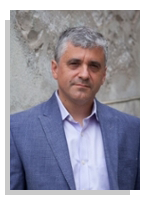 Steven Levitsky is David Rockefeller Professor of Latin American Studies and Professor of Government at Harvard University and Director of Harvard’s David Rockefeller Center for Latin American Studies. His research focuses on democratization and authoritarianism, political parties, and weak and informal institutions, with a focus on in Latin America. He is co-author (with Daniel Ziblatt) of How Democracies Die (Crown, 2018), which was a New York Times Best-Seller and was published in 25 languages. He has written or edited 11 other books, including Transforming Labor-Based Parties in Latin America: Argentine Peronism in Comparative Perspective (Cambridge University Press 2003), Competitive Authoritarianism: Hybrid Regimes after the Cold War (with Lucan Way) (Cambridge University Press, 2010), and Social Revolution and Durable Authoritarianism in the Modern World (with Lucan Way) (Princeton University Press, forthcoming). He and Daniel Ziblatt are currently working on a book on the rise of (and reaction against) multiracial democracy in the United States.
Steven Levitsky is David Rockefeller Professor of Latin American Studies and Professor of Government at Harvard University and Director of Harvard’s David Rockefeller Center for Latin American Studies. His research focuses on democratization and authoritarianism, political parties, and weak and informal institutions, with a focus on in Latin America. He is co-author (with Daniel Ziblatt) of How Democracies Die (Crown, 2018), which was a New York Times Best-Seller and was published in 25 languages. He has written or edited 11 other books, including Transforming Labor-Based Parties in Latin America: Argentine Peronism in Comparative Perspective (Cambridge University Press 2003), Competitive Authoritarianism: Hybrid Regimes after the Cold War (with Lucan Way) (Cambridge University Press, 2010), and Social Revolution and Durable Authoritarianism in the Modern World (with Lucan Way) (Princeton University Press, forthcoming). He and Daniel Ziblatt are currently working on a book on the rise of (and reaction against) multiracial democracy in the United States.
Levitsky has also written for the New York Times, Foreign Affairs, Vox, The New Republic, The Atlantic, and The Monkey Cage, and he has written columns in La Republica (Peru) and Folha Do Sao Paulo (Brazil).
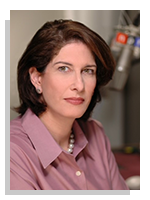 Mara Liasson is a national political correspondent for NPR. Her reports can be heard regularly on NPR's award-winning newsmagazine programs Morning Edition and All Things Considered. Liasson provides extensive coverage of politics and policy from Washington, DC — focusing on the White House and Congress — and also reports on political trends beyond the Beltway.
Mara Liasson is a national political correspondent for NPR. Her reports can be heard regularly on NPR's award-winning newsmagazine programs Morning Edition and All Things Considered. Liasson provides extensive coverage of politics and policy from Washington, DC — focusing on the White House and Congress — and also reports on political trends beyond the Beltway.
Each election year, Liasson provides key coverage of the candidates and issues in both presidential and congressional races. During her tenure she has covered eight presidential elections — from 1992 to 2020. Prior to her current assignment, Liasson was NPR's White House correspondent for all eight years of the Clinton administration. She has won the White House Correspondents' Association's Merriman Smith Award for daily news coverage in 1994, 1995, and again in 1997. From 1989-1992 Liasson was NPR's congressional correspondent.
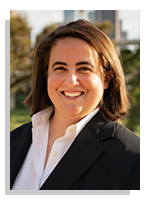 Born of Mexican and French immigrant parents, Isabel is a policy wonk and native Houstonian. A dedicated progressive public servant, she is proud to have held positions with AARP, The Office of State Senator Sylvia R. Garcia and the Office of State Representative Jessica Farrar. Her previous work experience includes political campaigns and working for elected officials in the Houston area, with a focus on Latino and LGBTQIA+ community organizing, urban planning, and civic engagement.
Born of Mexican and French immigrant parents, Isabel is a policy wonk and native Houstonian. A dedicated progressive public servant, she is proud to have held positions with AARP, The Office of State Senator Sylvia R. Garcia and the Office of State Representative Jessica Farrar. Her previous work experience includes political campaigns and working for elected officials in the Houston area, with a focus on Latino and LGBTQIA+ community organizing, urban planning, and civic engagement.
Isabel is proud to have served on the City of Houston's Planning Commission, the Mayor's LGBTQ Advisory Board, the New Leaders' Council Board, and the Board of the League of Women Voters. She holds a Bachelor's Degree of Sociology from Trinity University (San Antonio) and a Master's Degree in Public Affairs from the University of Texas LBJ School of Public Affairs (Austin).
In November 2020 she was appointed as Harris County's first ever Elections Administrator, and served under Interim County Clerk Chris Hollings during the November 2020 Presidential election.
Isabel's goal is to build access for Harris County's 2.5 million registered and future voters. Under her tenure, elections are administered with a focus on equity, access, fairness, and security - an approach that has led to the adoption of new voting machines, more data transparency, and higher rates of voter turnout in the country's third largest county.
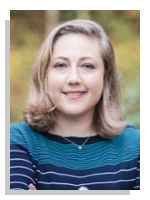 Sarah Longwell is a Co-Founder of Defending Democracy Together, spokeswoman for its project Republicans for the Rule of Law, and executive director of the newly launched Republican Accountability Project. She is also the Publisher of The Bulwark. She lives in Washington, D.C. with her family and is a graduate of Kenyon College.
Sarah Longwell is a Co-Founder of Defending Democracy Together, spokeswoman for its project Republicans for the Rule of Law, and executive director of the newly launched Republican Accountability Project. She is also the Publisher of The Bulwark. She lives in Washington, D.C. with her family and is a graduate of Kenyon College.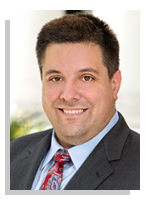 Michael T. Morley is an Associate Professor at Florida State University College of Law. Professor Morley joined FSU Law in 2018, and teaches and writes in the areas of election law, constitutional law, remedies, and the federal courts. He is best known for his work on election emergencies and post-election litigation, nationwide and other defendant-oriented injunctions, the jurisdiction of the federal courts and their equitable powers more generally. He has testified before congressional committees, made presentations to election officials for the U.S. Election Assistance Commission and participated in bipartisan blue-ribbon groups to develop election reforms. The governor of Florida also appointed Professor Morley to the Criminal Punishment Code Task Force, to propose potential revisions to the legislature.
Michael T. Morley is an Associate Professor at Florida State University College of Law. Professor Morley joined FSU Law in 2018, and teaches and writes in the areas of election law, constitutional law, remedies, and the federal courts. He is best known for his work on election emergencies and post-election litigation, nationwide and other defendant-oriented injunctions, the jurisdiction of the federal courts and their equitable powers more generally. He has testified before congressional committees, made presentations to election officials for the U.S. Election Assistance Commission and participated in bipartisan blue-ribbon groups to develop election reforms. The governor of Florida also appointed Professor Morley to the Criminal Punishment Code Task Force, to propose potential revisions to the legislature.
The U.S. Supreme Court has cited several of his articles, and he was counsel of record for the successful Petitioner in a landmark campaign finance case. Professor Morley has appeared on C-SPAN, Court TV, Fox News and numerous local news programs, and has been quoted in the Washington Post, Los Angeles Times, Roll Call, Politico, U.S. News and World Report, and a wide range of other national publications. His work has been published in many of the nation’s top law reviews, including the Georgetown Law Journal, Northwestern University Law Review, Boston University Law Review and Emory Law Journal.
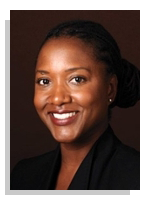 Janai S. Nelson is Associate Director-Counsel of the NAACP Legal Defense and Educational Fund, Inc. (LDF). As an organizational thought-leader at LDF, Ms. Nelson works with the President and Director-Counsel to determine and execute LDF’s strategic vision and oversee the operation of its programs. A member of LDF’s litigation and policy teams, Ms. Nelson’s extensive civil rights law experience includes expertise as a voting rights and election law scholar, serving as one of the lead counsel in Veasey v. Abbott (2018), a federal challenge to Texas’s voter ID law, hair discrimination advocacy, and testifying before Congress multiple times on issues ranging from voting rights and election law to discriminatory practices and procedures administered by TSA.
Janai S. Nelson is Associate Director-Counsel of the NAACP Legal Defense and Educational Fund, Inc. (LDF). As an organizational thought-leader at LDF, Ms. Nelson works with the President and Director-Counsel to determine and execute LDF’s strategic vision and oversee the operation of its programs. A member of LDF’s litigation and policy teams, Ms. Nelson’s extensive civil rights law experience includes expertise as a voting rights and election law scholar, serving as one of the lead counsel in Veasey v. Abbott (2018), a federal challenge to Texas’s voter ID law, hair discrimination advocacy, and testifying before Congress multiple times on issues ranging from voting rights and election law to discriminatory practices and procedures administered by TSA.
Prior to joining LDF in June 2014, Ms. Nelson was Associate Dean for Faculty Scholarship and Associate Director of the Ronald H. Brown Center for Civil Rights and Economic Development at St. John’s University School of Law where she is also a full professor of law. Ms. Nelson received the 2013 Derrick A. Bell Award from the American Association of Law Schools (AALS) Section on Minority Groups and was named one of Lawyers of Color’s 50 Under 50 minority professors making an impact in legal education. Prior to joining St. John's faculty, Ms. Nelson was a Fulbright Scholar at the Legal Resources Center in Accra, Ghana. She began practicing law as the 1998 recipient of the NAACP LDF/Fried Frank Fellowship, following federal district and appellate court clerkships. Ms. Nelson later became Director of LDF’s Political Participation Group, overseeing all voting related litigation and matters, litigating voting rights and redistricting cases, and working on criminal justice issues. Ms. Nelson has published scholarship in leading law reviews and writes for popular press. She has appeared in various media as an expert on race, civil rights, constitutional law and election law, and regularly speaks at conferences and symposia nationwide. She is a graduate of New York University and received her J.D. from UCLA School of Law.
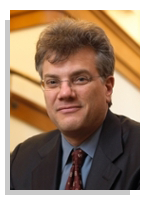 Richard H. Pildes is the Sudler Family Professor of Constitutional Law at New York University School of Law, an elected member of the American Academy of Arts and Sciences and the American Law Institute, and a Guggenheim and Carnegie fellow. A law clerk to Justice Thurgood Marshall at the United States Supreme Court, Professor Pildes also has successfully argued cases before the Court and numerous federal courts of appeals. President Biden recently appointed him to the President’s Commission on the Supreme Court of the United States. He is one of the country’s leading experts on legal issues concerning American democracy and the structure of American government, including voting rights, elections, and campaigns, as well as separation of powers, administrative law, and constitutional law more generally. His co-authored casebook, The Law of Democracy: Legal Regulation of The Political Process, helped create the study of democracy as an academic field in the law schools; he has also co-authored or edited volumes entitled When Elections Go Bad and The Future of the Voting Rights Act. As a public commentator, he was an election analyst for CNN in the 2020 election and for NBC in the 2000 election. Some of his major recent academic articles include Political Fragmentation and the Decline of American Government; Participation and Polarization; Populism and Institutional Design: Methods of Selecting Candidates for Chief Executive; Romanticizing Democracy, Political Fragmentation, and the Decline of American Government; Law and the President; Why the Center Does Not Hold: The Causes of Hyperpolarized Democracy in America; Is the Supreme Court a “Majoritarian” Institution; The Constitutionalization of Democratic Politics; and Separation of Parties, Not Powers.
Richard H. Pildes is the Sudler Family Professor of Constitutional Law at New York University School of Law, an elected member of the American Academy of Arts and Sciences and the American Law Institute, and a Guggenheim and Carnegie fellow. A law clerk to Justice Thurgood Marshall at the United States Supreme Court, Professor Pildes also has successfully argued cases before the Court and numerous federal courts of appeals. President Biden recently appointed him to the President’s Commission on the Supreme Court of the United States. He is one of the country’s leading experts on legal issues concerning American democracy and the structure of American government, including voting rights, elections, and campaigns, as well as separation of powers, administrative law, and constitutional law more generally. His co-authored casebook, The Law of Democracy: Legal Regulation of The Political Process, helped create the study of democracy as an academic field in the law schools; he has also co-authored or edited volumes entitled When Elections Go Bad and The Future of the Voting Rights Act. As a public commentator, he was an election analyst for CNN in the 2020 election and for NBC in the 2000 election. Some of his major recent academic articles include Political Fragmentation and the Decline of American Government; Participation and Polarization; Populism and Institutional Design: Methods of Selecting Candidates for Chief Executive; Romanticizing Democracy, Political Fragmentation, and the Decline of American Government; Law and the President; Why the Center Does Not Hold: The Causes of Hyperpolarized Democracy in America; Is the Supreme Court a “Majoritarian” Institution; The Constitutionalization of Democratic Politics; and Separation of Parties, Not Powers.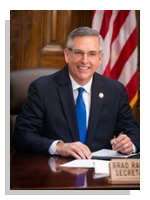 Secretary of State Brad Raffensperger is the CEO and owner of Tendon Systems, LLC. Tendon is a specialty contracting and engineering design firm with nearly 150 employees. The firm has operated in 35 different states. Raffensperger also owns and operates a specialty steel manufacturing plant based in Forsyth County. Additionally, he served two terms in the Georgia General Assembly from 2015-2019.
Secretary of State Brad Raffensperger is the CEO and owner of Tendon Systems, LLC. Tendon is a specialty contracting and engineering design firm with nearly 150 employees. The firm has operated in 35 different states. Raffensperger also owns and operates a specialty steel manufacturing plant based in Forsyth County. Additionally, he served two terms in the Georgia General Assembly from 2015-2019.
Brad Raffensperger earned a bachelor’s degree in civil engineering from Western University and was awarded his MBA from Georgia State University. He is a licensed Professional Engineer in over 30 states.
Brad and his wife, Tricia, have been married for 42 years and live in Johns Creek. Brad is a member of North Point Community Church.
Co-sponsored by:

